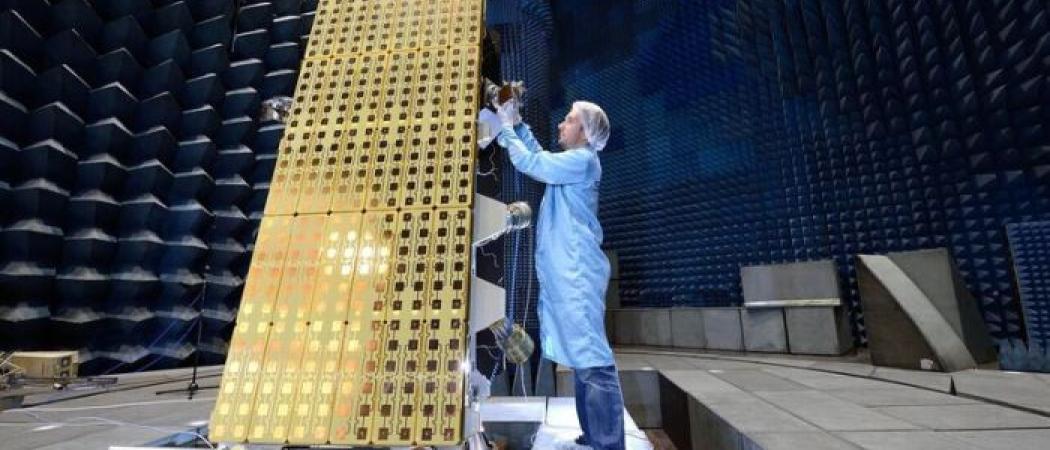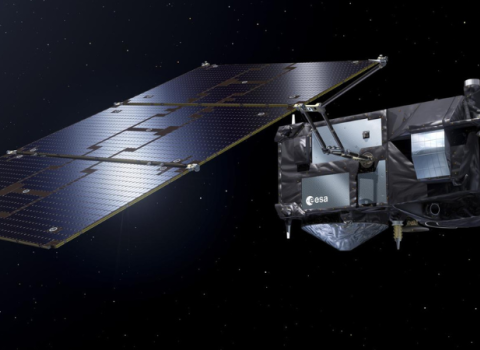The UK space mission NovaSAR has attracted Australia to take a ten per cent share in the project, which aims to launch a satellite to track forestry management and shipping lanes in early 2018.

NovaSAR-S EMC test at Airbus Defence and Space, Portsmouth. Credit: Airbus Defence and Space
NovaSAR is designed to capture images through cloud and in darkness, allowing it to work at high latitudes and in tropical regions. Data could be used for disaster relief efforts, monitoring shipping routes and forests.
The researchers say they will explore other possibilities once NovaSAR is in orbit, such as detecting landslides before they happen.
Similar satellites have been large and used a lot of power, problems NovaSAR aims to solve with a compact design.
The deal was agreed one week after the UK made another show of scientific independence from the EU, when minister Jo Johnson signed the first ever umbrella science and technology agreement with the US and announced approximately $88 million in funding for the international Long-Baseline Neutrino Facility and Deep Underground Neutrino Experiment (LBNF/DUNE).
The new agreement lays the groundwork for additional collaboration between the US Department of the Environment, its national laboratories and the UK Science and Technology Facilities Council
LBNF/DUNE is envisaged as a world-leading international neutrino experiment in which particle accelerators at Fermilab, near Chicago, will create the world’s most intense beam of neutrinos and send it 800 miles through the earth to particle detectors, to be built a mile underground at the Sanford Underground Research Facility in South Dakota.
DUNE will be the first large-scale experiment hosted in the US that runs as a truly international project, with more than 1,000 scientists and engineers from 31 countries building and operating the facility.
Its goal is to learn more about neutrinos, ghostly particles, which may provide insight into why we live in a matter-dominated universe that survived the Big Bang.





 A unique international forum for public research organisations and companies to connect their external engagement with strategic interests around their R&D system.
A unique international forum for public research organisations and companies to connect their external engagement with strategic interests around their R&D system.